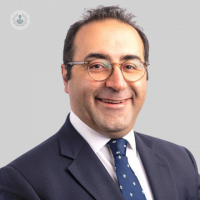Endoscopic pituitary surgery explained
Escrito por:In this article below, Mr Alireza Shoakazemi, a highly regarded consultant neurosurgeon, gives a detailed insight into all things endoscopic pituitary surgery.

How does endoscopic pituitary surgery differ from traditional surgical approaches?
Endoscopic pituitary surgery will provide an ultimate visualisation of the tumours in the pituitary area. Using special instruments, this technique will provide a more delicate removal of tumours and a better opportunity to preserve the function of important structures in this area.
What are the common reasons for undergoing endoscopic pituitary surgery?
This surgical approach is used to tackle different pathologies in the anterior part of the skull base, including tumours arising from pituitary gland, craniopharyngioma, other benign tumours such as meningioma, and certain malignant tumours.
What are the potential risks and complications associated with endoscopic pituitary surgery?
It is a very long procedure, so this surgery does have associated risks. The main risk is leakage of the fluid of the brain.
How long is the typical recovery period following endoscopic pituitary surgery?
Most patients make a full recovery after four weeks.
What outcomes can patients expect after undergoing endoscopic pituitary surgery in terms of symptom relief and long-term management?
The tumours in this area can cause problems with vision and hormonal imbalance. In many cases, these two issues can be resolved.
If you wish to book an appointment with Mr Alireza Shoakazemi today, you can head on over to his Top Doctors profile to do just that.


